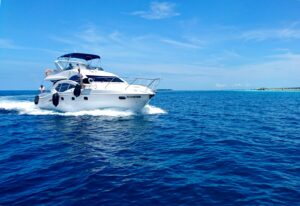The D8 Visa Portugal Explained
![boats docked near seaside promenade]](https://uawnews.com/wp-content/uploads/2025/05/prb-sjoubfs-1024x683.jpg)
The D8 Visa Portugal, commonly known as Portugal’s Digital Nomad Visa, is a residency permit introduced in October 2022 to attract remote workers and freelancers from non-EU/EEA countries. Designed for individuals who can perform their work remotely, the D8 Visa allows them to live in Portugal while continuing their employment with companies or clients outside the country. This initiative positions Portugal as a prime destination for digital nomads seeking a blend of professional flexibility and European lifestyle.
Eligibility Criteria
To qualify for the D8 Visa, applicants must meet several requirements:
- Age and Nationality: Applicants must be at least 18 years old and citizens of non-EU/EEA countries.
- Remote Work: Proof of remote employment or freelance work is essential. This can include employment contracts, freelance agreements, or evidence of business ownership.
- Income Requirements: Applicants must demonstrate a stable monthly income. For the temporary stay visa, the requirement is approximately €3,280 per month, while the long-term residency visa requires about €3,040 per month.
- Financial Stability: In addition to monthly income, applicants should have savings equivalent to at least 12 times the Portuguese minimum wage, which amounts to €9,840 in 2024.
- Clean Criminal Record: A certificate from the applicant’s home country confirming no criminal convictions is mandatory.
- Health Insurance: Comprehensive health insurance covering the duration of the stay in Portugal is required.
- Accommodation Proof: Evidence of accommodation in Portugal, such as a rental agreement or property purchase, must be provided.
Application Process
The application for the D8 Visa involves several steps:
- Document Preparation: Gather all necessary documents, including proof of income, employment contracts, health insurance, accommodation details, and a clean criminal record certificate.
- Application Submission: Submit the application either online through the SEF (Serviço de Estrangeiros e Fronteiras) portal or at the Portuguese consulate in your home country.
- Fees: Pay the application fee, which is €50 for the visa and €72 for the residence permit.
- Interview: Attend an interview if required. This may depend on the application route and the discretion of the consulate.
- Processing Time: The visa processing time can vary but generally takes between 2 to 3 months.
- Arrival in Portugal: Upon approval, travel to Portugal and attend an appointment with SEF to finalize the residence permit.
Types of D8 Visas
There are two categories under the D8 Visa:
- Temporary Stay Visa: Valid for one year with the possibility of renewal. It allows multiple entries and is suitable for those wishing to test living in Portugal without immediate long-term commitment.
- Residency Visa: This visa leads to a residence permit valid for two years, renewable for successive periods of two years. After five years, holders can apply for permanent residency or Portuguese citizenship.
Benefits of the D8 Visa
- Residency Rights: Live and work legally in Portugal with full residency rights.
- Schengen Area Access: Enjoy visa-free travel within the Schengen Area, covering 26 European countries.
- Healthcare Access: Gain access to Portugal’s National Health Service after establishing residency.
- Family Inclusion: Bring along family members, including spouses, children, and dependent parents, under the same visa.
- Tax Incentives: Potential eligibility for the Non-Habitual Resident (NHR) tax regime, offering favorable tax rates for a period of 10 years.
Maintaining the D8 Visa
To retain the D8 Visa:
- Stay Duration: Spend at least 183 days per year in Portugal.
- Annual Renewal: Renew the visa annually by submitting updated proof of income, health insurance, and accommodation.
- Tax Compliance: Fulfill tax obligations in Portugal, which may include declaring worldwide income.
- Continuous Employment: Maintain valid remote employment or freelance work throughout the stay.
Conclusion
Portugal’s D8 Visa offers a compelling opportunity for digital nomads seeking to immerse themselves in European culture while maintaining their remote careers. With its favorable living conditions, access to the Schengen Area, and potential tax benefits, Portugal stands out as an attractive destination for remote workers worldwide.





![boats docked near seaside promenade]](https://uawnews.com/wp-content/uploads/2025/05/prb-sjoubfs-300x200.jpg)

